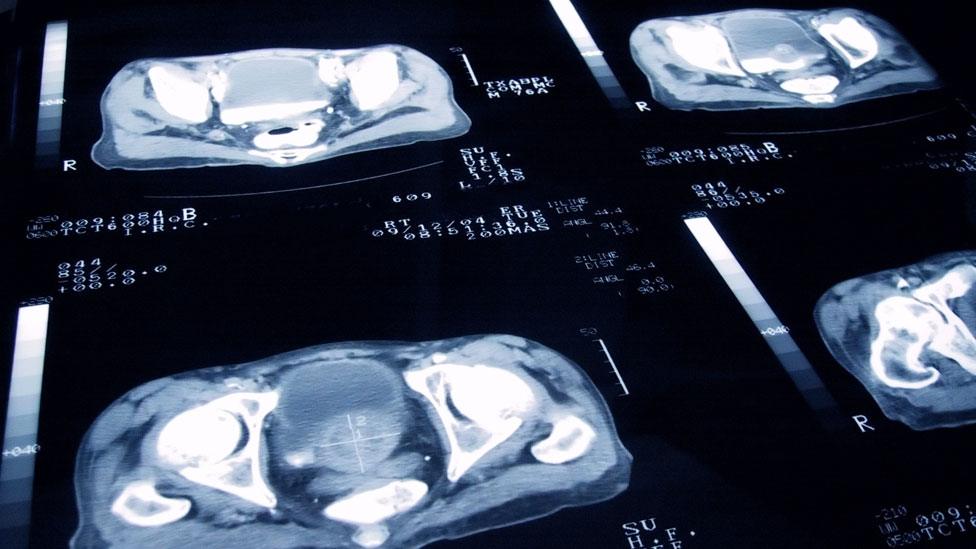Cancer death gap widens in poorer areas
- Published

Lung, bowel, breast and prostate cancers all saw a slowdown in decline in death rates
There is a growing gap between cancer death rates of people living in deprived parts of Wales and those in richer areas, latest trends suggest.
The drop in cancer deaths in the most deprived areas is not as steep as less deprived areas, said the Welsh Cancer Intelligence and Surveillance Unit.
Macmillan Cancer Support said it was concerned about the widening gap.
The charity said it was also "worrying" to see a slowing down of the falling cancer death rate.
In the seven years to 2017, the age-adjusted cancer death rate in Wales fell by 5.4%, but in the same period before 2010, the cancer death rate dropped by 9.2%.
The rate of decline was also more rapid in Scotland and England - and amongst women.
The latest trends - published in a cancer mortality report, external - also show half of cancer deaths are of people who are aged under 75.
The latest trends show cancer death rates are falling - and are still falling steeply in poorer areas. But the gap is widening between people living in the most deprived areas and those in the least deprived parts of Wales.
This gap increased by 14.1% between 2001 and 2005, and 2013 and 2017, from 111 cancer deaths per 100,000 people to 126.6 cancer deaths per 100,000 people.
Lung cancer is the most common cause of cancer death, with 1,891 deaths in 2017 - more than 20% of all cancer deaths.
It is also is now increasing amongst very old men, as well as in middle-aged to older women, and very old women.
Richard Pugh, of Macmillan Cancer Support in Wales, said there was still too much variation in how many people die from cancer according to where they live, their gender and the type of cancer they have.
"We need a focused effort across Wales to support early cancer diagnosis, timely, high quality cancer treatment which meets people's needs, as well as the right workforce and infrastructure in place to support this," he said.

Analysis by Owain Clarke, BBC Wales health correspondent
So why are cancer death rates higher in poorer communities than richer ones?
It's true to say levels of smoking, drinking and obesity are higher - which increases the risk of developing preventable diseases.
But lots of factors could be at play.
If you're unemployed and feel disempowered, are you less likely or able to make healthy choices?
Are you less likely to access health information - and less likely to spot the symptoms?
Are you also perhaps, even if you suspect something is wrong, less likely to go to see a doctor or nurse or take part in screening?
These are all questions health experts are looking at.
But it's a complicated picture.
- Published22 November 2018

- Published22 November 2018
